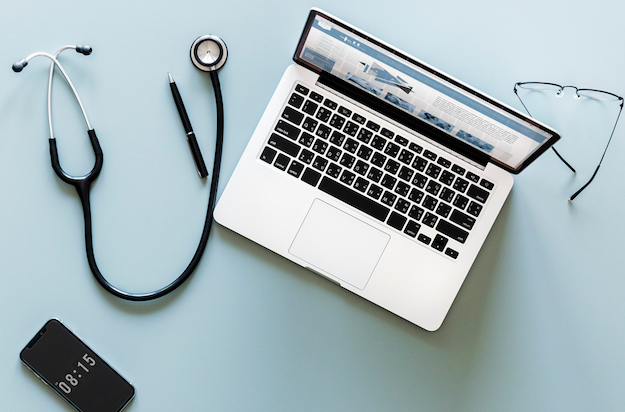Technology has infiltrated the medical industry. Patients use mobile apps to keep track of their data and appointment information. Surgeons and therapist use robotic arms to perform procedures. Today’s medicine is more advanced than people thought was possible. It’s like science fiction.
There’s even iPhone app for medical records that physicians and patients can use. Patients can choose a provider and keep track of all their medical records.
Here are a few of the ways technology is influencing medicine.
Smart Devices
Think about inhalers. They’re the most effective treatment for asthma. The vast majority of patients see improvements. However, inhalers are far from perfect. Many people don’t use them correctly and it’s hard to keep track of your use.
There are now “smart” inhalers on the market. These Bluetooth-enabled devices record every time the inhaler is used and if the patient got a full dose. Doctors and patients can review the results.
Smart inhalers are just the beginning.
3D Printing
3D printing is changing the game. There are a couple of different ways it can help patients. Surgeons can print out exact replicas of the organs they’re going to operate on. It gives them an extra dose of confidence. They can test out possible complications without having to touch the patient.
3D printing can also be used to create substitute body parts that actually go into the body.
The technology is still in its infancy.
Robots in Surgery
Right now, robotic surgical tools are used in minimally invasive procedures. A robot arm never wavers. It never gets tired. The surgeon can gain complete control of difficult procedures. It’s easy to predict the future will be.
Robots will become advanced and their operating room duties will increase. At some point, robots may perform entire surgeries on their own.
Wearable Technology
The fitbits and other devices that society loves have a real health benefit. You can buy a device that monitors and keeps track of all of your health data. Are you a runner? Your wearable will record your heart rate data. Trouble sleeping? The device handles that information as well.
There are versions of the Apple watch that was built with an integrated ECG. It’s a major boon for patients with heart problems. It can spot problems before the patient knows anything is wrong.
You already use your smartphone to keep track of your life. A health wearable is just an extra step.
Data
Medicine is ruled by information. Understanding how thousands or even millions of patients reacted to a specific treatment plan gives you invaluable information.
Medical professionals now have access to more information than ever before. Big data exists. Eventually, your physician might have even be able to see where you ate lunch. This is the key to medical advancements.
The supercomputer that won Jeopardy 8 years ago is now being used as a physician’s tool.
Telehealth
People sometimes put their own health danger they’re so desperate to avoid going to the doctor’s office. It’s not a fun experience.
Telehealth solves that problem and a few additional ones. It allows patients to visit with their doctor from the comfort of their own homes. It’s an extremely efficient way for a doctor to perform house calls.
If you’re traveling in an area that doesn’t have a good hospital, a telehealth service can be a lifesaver. It’s also useful for people dealing with chronic conditions.
CRISPR
Clustered Regularly Interspaced Short Palindromic Repeats (CRISPR) is an advanced form of gene-editing. Physicians are still working out how to use it. There are those that believe that CRISPR’s powers go too far.
You could potentially create “designer” babies. You and your partner could design your baby’s hair color, height, possibly even their intelligence. However, the technology isn’t there yet.
CRISPR uses bacteria cells to slice off specific DNA strands.
Personalized Medicine
An increased understanding of genetics is allowing doctors to treat patients in a more personalized way. Your unique body chemistry affects how you to respond to medication. It even affects the course of your disease.
Certain diseases, like cancer and autoimmune issues, are particularly suitable for personalized medicine. Because the technology is still so new, it’s not a reasonable option for most patients.
However, that’s slowly changing.
Technology and medicine make a potent combination. Patient outcomes are better than ever before. Some people fear that medicine will become too impersonal. Yet that needs to be weighed against better survival rates. A robot can do what human physicians can not.

